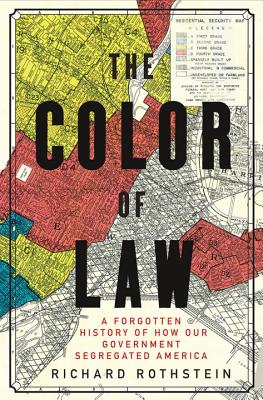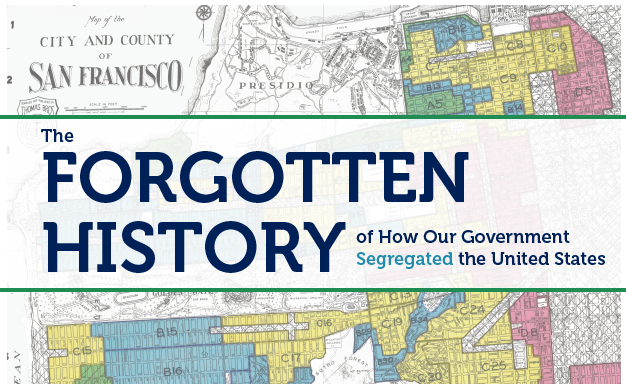My 8th grade class this year chose to investigate discrimination as part of an emergent curriculum rooted in students’ own questions and concerns. Towards the beginning of their investigations, they read an abridged version of “The Case for Reparations” by Ta-Nehisi Coates. They prepared for and participated in a Socratic seminar on the reading. All students were interested in this essay and the stories shared in it, but some felt that it was unfair to ask people today to make reparation or amends for harms done by previous generations of Americans.
In a follow-up activity, I asked students to listen to Richard Rothstein discussing his book The Color of Law with the podcast hosts of “Have You Heard?” Students were by then in the early stages of production of a podcast of their own, so this was a good format for them to engage with the content, as they could use this podcast as a partial model for their own. We paused the audio periodically so that I could ask students what they understood about the role of the federal government and federal housing policy in people’s lives. How did federal policies give rise to housing segregation and housing discrimination? How did this limit Black Americans’ access to opportunities to build wealth and economic security? Why were the policies enacted? Who benefited? Who was harmed? How might the policies have had an impact on future generations?
After learning in more depth and detail about dejure segregation, students were much more likely to agree that our government today should play a role in repairing the harms of segregation and discrimination. For some, their concern shifted from the unfairness of white Americans being “punished” for actions of previous generations over which they had no control, to the unfairness visited on Black Americans who were legally barred from using their own resources to secure property and opportunity for themselves and their families.








Twitter
Google plus
LinkedIn